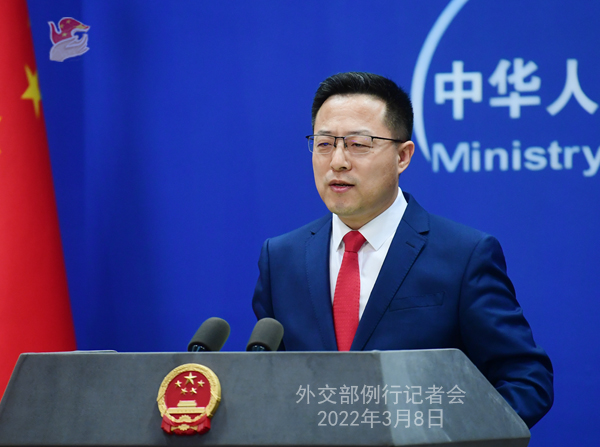US urged to come clean on bio-labs


China once again urged the United States on Tuesday to make a comprehensive clarification of its biological military activities both at home and abroad, and accept multilateral verification, after US-run biological laboratories in Ukraine have aroused extensive attention.
The US, which knows those laboratories the most, should release relevant information including viruses stored and research conducted as soon as possible, said Foreign Ministry spokesman Zhao Lijian at a news briefing.
Reports said Russia has found evidence of US-funded bio labs in Ukraine that store deadly pathogens.
And the US embassy in Ukraine on Feb 26 removed all documents about these bio-labs in Ukraine from its website.
Citing figures released by the US itself, Zhao said there are 26 US bio-labs in Ukraine that store dangerous viruses.
The US Department of Defense has absolute control over these laboratories, and all research activities must be led by the US. Without its permission, any information cannot be made public.
For the health and safety of people in Ukraine, neighboring areas and people of the world at large, China called on all parties concerned, especially the US, to ensure the security of these laboratories.
'Tip of the iceberg'
"The US military biological activities in Ukraine are only the tip of the iceberg," Zhao said.
He said the Pentagon controls 336 biological laboratories in 30 countries across the globe in the name of collaborating to reduce biological security risks and strengthening global public health.
Washington also conducts numerous biological military activities in Fort Detrick in Maryland.
Zhao also said the international community has always harbored suspicion over the US' real intentions and what it has done. Yet, Washington has dodged these concerns and even claims questions from the international community amount to the spread of disinformation.
Over the past 20 years, the US has always obstructed the establishment of the verification mechanism of the Biological Weapons Convention and refused to accept verification of its biological facilities both at home and abroad, Zhao said.
And those moves have further intensified concerns of the international community, he added.

































